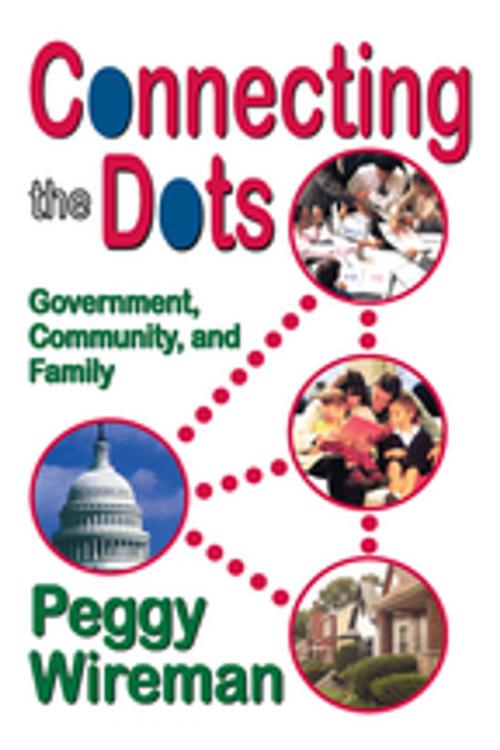Connecting the Dots
Government, Community, and Family
Nonfiction, Social & Cultural Studies, Social Science, Sociology| Author: | Peggy Wireman | ISBN: | 9781351526593 |
| Publisher: | Taylor and Francis | Publication: | September 8, 2017 |
| Imprint: | Routledge | Language: | English |
| Author: | Peggy Wireman |
| ISBN: | 9781351526593 |
| Publisher: | Taylor and Francis |
| Publication: | September 8, 2017 |
| Imprint: | Routledge |
| Language: | English |
Despite its size and social diversity, the United States is one nation, and what happens in one city or neighborhood ultimately affects all Americans. "Connecting the Dots" addresses the complex relationships between family and community, and between community and other players affecting family and community life, including the private sector, government, nonprofit groups, and religious organizations. Contrary to much rhetoric, Wireman argues that America does not suffer from a loss of family values, but from a shift in business practices and public commitments. The American dream of work hard, buy a home, and give your children a better life is no longer realistic for millions of workers, both white-collar and blue-collar. At an individual level, millions of Americans face significant challenges as they go about trying to meet the everyday responsibilities of earning an income, feeding their families, maintaining their health, finding housing, handling everyday household chores, and caring for their children. Besides identifying top-down structures, laws, and attitudes that create a supportive context for family life, the book includes bottom-up anecdotal examples to ground its policy-oriented discussion. It also provides statistical data needed to develop realistic solutions. Wireman examines diversity as well, since how America handles racial and ethnic differences remains crucial to its future. She discusses ways in which communities have created social capital, community cohesion, and local organizational ability. Wireman provides a framework for policymakers, local community leaders, and neighborhood activists to use in analyzing their situations and selecting the best approach; she also describes what various players can and must do to uphold the American dream. "Connecting the Dots" will be of keen interest to sociologists, political scientists, economists, and social workers.
Despite its size and social diversity, the United States is one nation, and what happens in one city or neighborhood ultimately affects all Americans. "Connecting the Dots" addresses the complex relationships between family and community, and between community and other players affecting family and community life, including the private sector, government, nonprofit groups, and religious organizations. Contrary to much rhetoric, Wireman argues that America does not suffer from a loss of family values, but from a shift in business practices and public commitments. The American dream of work hard, buy a home, and give your children a better life is no longer realistic for millions of workers, both white-collar and blue-collar. At an individual level, millions of Americans face significant challenges as they go about trying to meet the everyday responsibilities of earning an income, feeding their families, maintaining their health, finding housing, handling everyday household chores, and caring for their children. Besides identifying top-down structures, laws, and attitudes that create a supportive context for family life, the book includes bottom-up anecdotal examples to ground its policy-oriented discussion. It also provides statistical data needed to develop realistic solutions. Wireman examines diversity as well, since how America handles racial and ethnic differences remains crucial to its future. She discusses ways in which communities have created social capital, community cohesion, and local organizational ability. Wireman provides a framework for policymakers, local community leaders, and neighborhood activists to use in analyzing their situations and selecting the best approach; she also describes what various players can and must do to uphold the American dream. "Connecting the Dots" will be of keen interest to sociologists, political scientists, economists, and social workers.















